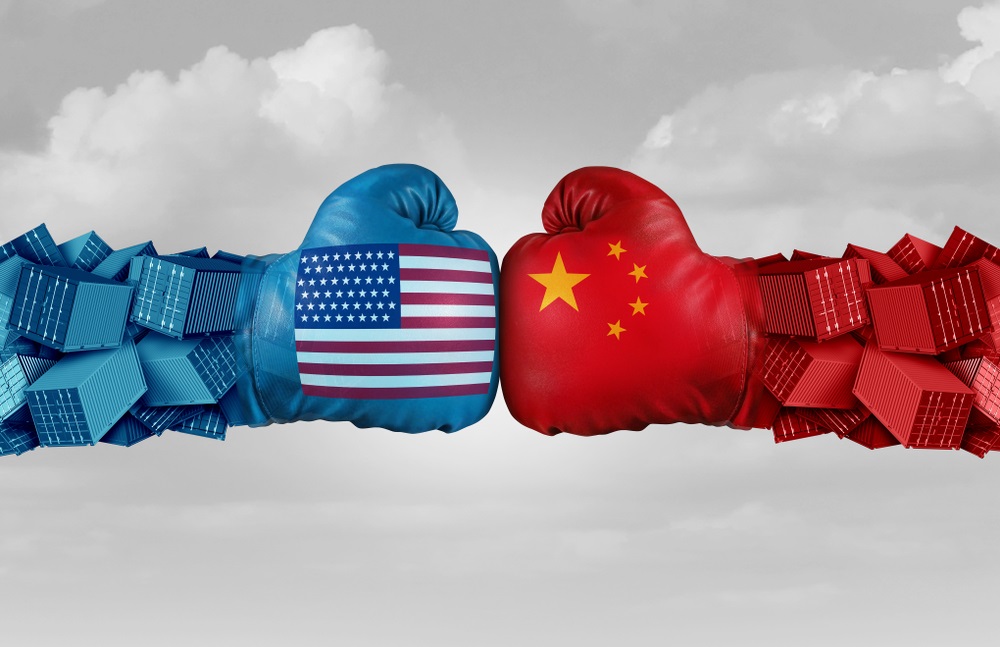
Why a US-China trade war could hurt the world and have an impact on African countries.
Why a US-China trade war could hurt the world and have an impact on African countries
Globalization creates optimal conditions for effective and continuous trade among countries. In the 21st century, even countries that previously played just a minor role in international trade have become full participants of global supply chains. One could hardly imagine that the 21st century would also start a new trade war. The United States and China, the two behemoths of global trade, are struggling to overcome newly imposed tariff barriers. This fight between the two giants will have far-reaching negative repercussions for other continents, including Africa, and countries, including Ethiopia. Being Africa’s largest and most reliable trade partner, China will have to reconsider its trade practices, and Ethiopia may have a chance to capture the new trade gaps to become even more deeply embedded into global supply chains.
ZTE is China’s second-largest telecommunications provider (Bloomberg News, 2018). It has become notorious for violating the US’s ban on selling telecommunication products and technologies to Iran. Its popularity boosted the moment President Donald Trump signed the new tariff decision to limit China’s presence in the American market. ZTE was “banned by the US Commerce Department from buying American technology for seven years, essentially ending its ability to operate as a business” (Bloomberg News, 2018). The case of ZTE is particularly relevant as trade tension between the US and China intensifies. It illustrates how trade between the two giants can hurt large and small companies. The thing about the US-China trade is that its impacts will hardly be limited to the two countries. Given the global nature of trade in the new millennium, the trade war between the US and China will become a momentous spillover, contaminating global trade and disrupting global supply chains.
Global supply chains are the first to suffer the impact of the US-China trade war. Dozens of countries will face business, economic and reputational losses as a result of this trade war. David Dollar and Zhi Wang are right when they say that the US’s decision to impose tariffs on the value-added products imported from China is like shooting oneself in the foot – both countries import a lot of products from each other that ensure the continuity and integrity of their supply chains. These products also contribute to the stability of global supply chains, which is why other countries like Japan and South Korea will also bear the effects of the trade war. In the worst case, companies may need to relocate their facilities to avoid the new tariffs or at least keep their costs down.
Apparently, the new tariffs will launch a new inflation spiral, as the price on many Chinese goods will go up. These changes will be felt primarily in the US and China, but also in other countries that rely heavily on Chinese products. The United Kingdom and Europe will have to get used to new prices and costs, as large trade chains and the most prominent retailers change their pricing policies in response to the new tariffs, according to Linda Yueh. This is particularly the case of high-tech products that have been most heavily hit by the new tariffs. These are also products that give China a strong competitive advantage in the global tech market.
What does it have to do with Africa? Although African is not at the center of the global supply chains, it will still have to prepare itself for the negative changes in the global trade market. The US-China trade may happen on a limited physical territory but still impact other territories, countries, and people. Trade wars have been an indispensable component of history across the African continent. Western protectionism has been shaping African trade ideologies, and it has been a driver defining the direction of its trade activities. Now that China, Africa’s biggest trade partner, is facing protectionist barriers from the US, its trade relations with Africa may also deteriorate. Simultaneously, the African continent may see it as a window of opportunity, closing the gaps created by the US-China trade wars and going even deeper into global supply chains.
Ethiopia should prepare itself for a long and arduous fight between the two giants to preserve and strengthen its market advantage. As a result of the trade war, the export opportunities for China and its African allies are likely to shrink. When China-manufactured goods face tariffs, they are likely to end up in the domestic market, curbing the pace of domestic economic growth and reducing export opportunities for countries sending their goods to China. Ethiopia will have to be particularly creative using the trade war between the US and China as a trade benefit. As a model of a closed economy, it may have difficulties competing with other countries in the global market. However, its products and services can also become an alternative to China-based value-added products that have been so popular in the US. In any case, it is the moment of truth for Ethiopia to rethink its trade practices and become a full participant of international and global trade to benefit from the US-China trade war.
Ed.’s Note: Samuel Alemu, Esq is a partner at the ILBSG, LLP. He is a graduate of Harvard Law School, University of Wisconsin-Madison Law School, and Addis Ababa University. Samuel has been admitted to the bar associations of New York State, United States Tax Court, and the United States Court of International Trade. He can be reached at salemu@gmail.com.
Contributed by Samuel Alemu
Note: released first on Reporter English
